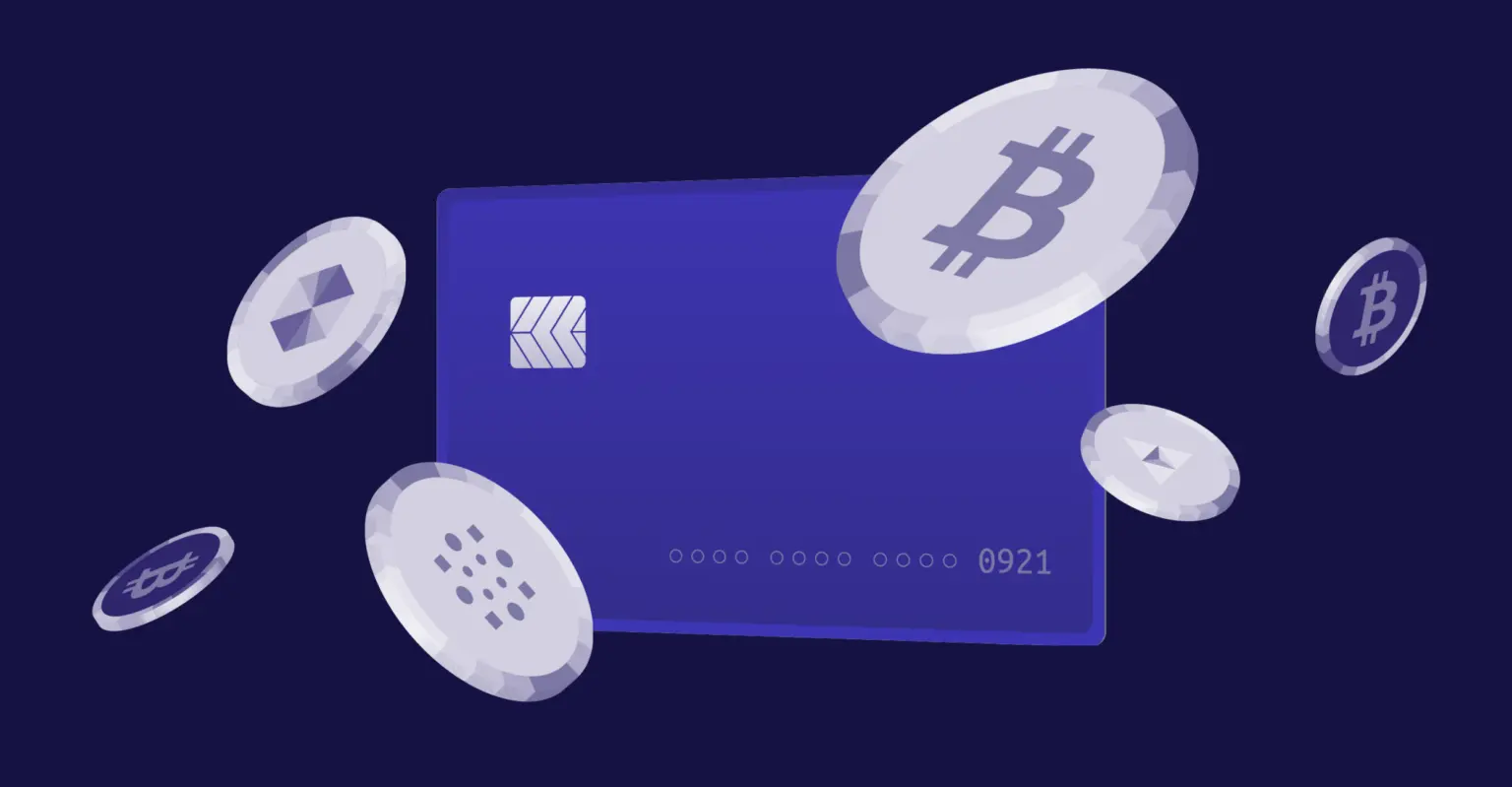How to Become Your Own Bank: The Complete Guide to Financial Self-Sovereignty

The traditional banking system is failing everyday Americans. Banks freeze accounts without warning, charge excessive fees, offer measly 0.5% interest while lending your money at 7-20%, and increasingly serve government surveillance over customer privacy. Meanwhile, inflation erodes your purchasing power faster than banks pay interest, creating a wealth transfer from savers to borrowers and institutions.
Becoming your own bank means taking complete control of your financial services – lending, borrowing, saving, and transferring money – without relying on traditional financial institutions. Through decentralized finance (DeFi) and cryptocurrency, you can provide these services to yourself and others while earning the profits banks traditionally captured.
This isn't just about buying Bitcoin. True self-banking involves creating a comprehensive financial ecosystem where you control every aspect of your money: storage, lending, borrowing, and wealth generation. You become both the bank owner and the customer, capturing profits while maintaining complete financial sovereignty.
The transformation from bank dependency to financial self-reliance requires understanding DeFi protocols, implementing proper security measures, and gradually building your decentralized financial infrastructure. This guide provides the roadmap thousands of Americans are already following to escape the traditional banking trap and build generational wealth.
Understanding the Self-Banking Revolution
Traditional banks profit by borrowing your money cheaply and lending it expensively. They pay you 0.5% on savings while charging 7% on mortgages and 20%+ on credit cards. This spread generates billions in profits while your purchasing power declines through inflation. Banks also maintain fractional reserves, meaning they only hold 10% of deposited funds – your money finances their investments and loan portfolios.
Modern banking adds surveillance and control mechanisms that would horrify previous generations. Banks monitor every transaction, report activities to government agencies, and can freeze accounts based on political opinions or social credit scores. Recent examples include Canadian truckers losing access to their funds and Americans facing account closures for legal political donations.
Self-banking through DeFi eliminates these intermediaries entirely. Instead of depositing money in banks that lend it out, you directly provide liquidity to borrowers through smart contracts. Rather than banks earning 6-19% spreads on your money, you capture these profits yourself. DeFi protocols offer 3-15% yields on stablecoin deposits – often 10x higher than traditional savings accounts.
The fundamental difference lies in control and transparency. Traditional banking operates as a black box where you trust institutions with your money and hope they remain solvent. DeFi operates on public blockchains where every transaction is visible, smart contracts execute automatically without human intervention, and you maintain custody of your assets throughout the process.
Decentralized protocols have processed over $12 trillion in transaction volume since 2020, proving the concept works at scale. Major institutions like JPMorgan and Goldman Sachs now use blockchain settlement, validating the technology's reliability for serious financial operations.
The transition requires learning new tools and accepting different risk profiles, but the payoff is substantial: higher yields, complete privacy, censorship resistance, and profits that historically flowed to banking executives now flow directly to you.
DeFi Lending and Borrowing: Capturing Banking Profits
Becoming your own bank starts with understanding how banks actually make money – and then capturing those profits yourself. The core banking business involves taking deposits at low interest rates and lending at higher rates. DeFi protocols replicate this model but distribute profits to participants rather than shareholders.
Aave leads the decentralized lending space with over $40 billion in Total Value Locked. When you deposit USDC into Aave, you're essentially becoming a bank – lending your stablecoins to borrowers who pay 3-8% interest. Unlike traditional banks that keep the spread, Aave distributes nearly all interest directly to lenders after small protocol fees.
The mechanics are straightforward but powerful. Deposit $10,000 USDC into Aave at 5% APY, and you earn $500 annually – 10x more than traditional savings accounts. Your funds remain accessible for withdrawal at any time, unlike bank CDs that lock up money for months or years. Smart contracts automatically calculate and distribute interest daily, eliminating human error or institutional manipulation.
Borrowing through DeFi creates additional self-banking opportunities. Instead of begging banks for loans and submitting to credit checks, you can borrow against your cryptocurrency holdings instantly. Deposit $20,000 worth of ETH as collateral and borrow $12,000 USDC immediately – no applications, no waiting periods, no personal guarantees.
This strategy proves particularly powerful for tax optimization and liquidity management. Rather than selling appreciated cryptocurrency and triggering capital gains taxes, you borrow against holdings to access cash flow. When your crypto appreciates further, you can repay the loan and keep the tax-free gains.
Compound Finance offers similar services with COMP token rewards that boost effective yields beyond base interest rates. The platform's simplicity makes it ideal for beginners, while its integration with other DeFi protocols enables advanced strategies like leveraged farming and automated rebalancing.
Advanced self-bankers use multiple protocols simultaneously. Deposit ETH into Lido for 3.6% staking yields, use the liquid stETH as collateral on Aave to borrow USDC at 4%, then lend that USDC back to Aave at 6% – creating a net positive carry trade while maintaining ETH exposure.
Risk management remains crucial for sustainable self-banking. Over-leveraging can trigger liquidations during market volatility, while smart contract bugs pose technical risks. Start conservatively with established protocols, maintain healthy collateralization ratios, and never risk more than you can afford to lose entirely.
Self-Custody and Financial Sovereignty: True Banking Independence
Real financial sovereignty requires complete control over your assets – something impossible within the traditional banking system where institutions hold legal title to your deposits. Self-custody through hardware wallets and decentralized protocols ensures you alone control your wealth, eliminating counterparty risk and government seizure threats.
Hardware wallets like Ledger and Trezor provide bank-level security for cryptocurrency storage while maintaining your complete control. Unlike bank accounts that can be frozen or seized, properly secured cryptocurrency remains accessible only to you. The device stores private keys offline, making remote hacking impossible while enabling easy transaction signing for DeFi interactions.
Setting up self-custody involves more than buying a hardware wallet. Generate seed phrases on air-gapped devices, store backup copies in multiple secure locations, and practice recovery procedures before transferring significant funds. Consider multi-signature setups for larger amounts, requiring multiple devices to authorize transactions and eliminating single points of failure.
Non-custodial DeFi protocols respect your sovereignty throughout the banking process. When you deposit funds into Aave or Compound, you receive tokenized receipts (aTokens or cTokens) that represent your claim to deposited funds plus accrued interest. These tokens remain in your wallet under your complete control – protocols cannot freeze, seize, or manipulate your holdings.
This contrasts sharply with traditional banking where deposits become bank liabilities and assets legally belong to the institution. Bank runs become impossible when you maintain direct ownership of your funds throughout the lending process. Even if DeFi protocols face technical issues, your tokenized positions retain their underlying value and remain recoverable.
Geographic diversification enhances sovereignty protection. Store hardware wallets and seed phrase backups across multiple jurisdictions to prevent single-government seizure. Many self-banking advocates maintain backup wallets in countries with strong property rights and limited government overreach, ensuring access regardless of domestic political changes.
The mental shift from banking dependency to financial sovereignty requires time and education. Start with small amounts while learning wallet management, gradually increasing holdings as comfort and expertise grow. Most importantly, resist the temptation to return funds to exchanges or centralized platforms for convenience – true sovereignty requires accepting responsibility for your own financial security.
Advanced Banking Services Through DeFi: Complete Financial Ecosystem
Modern self-banking extends far beyond simple lending and borrowing to encompass the full range of financial services traditionally provided by banks. DeFi protocols now offer payments, currency exchange, derivatives trading, insurance, and wealth management – often with better terms and greater transparency than traditional alternatives.
Decentralized exchanges like Uniswap process over $1 trillion annually, providing instant currency conversion without bank intermediaries. Rather than paying 3-5% foreign exchange fees at traditional banks, DEX trades typically cost 0.05-0.3% in protocol fees. You can exchange any cryptocurrency pair instantly, 24/7, without geographic restrictions or daily limits.
Payment systems built on stablecoins offer superior alternatives to traditional wire transfers and money services. Send $50,000 USDC internationally for under $5 in network fees, settling in minutes rather than days. Recipients anywhere in the world can access funds immediately without bank accounts or government-issued identification.
Yield optimization protocols automate complex banking strategies previously available only to institutional investors. Yearn Finance automatically moves your deposits between highest-yielding opportunities, rebalancing portfolios and compounding returns without manual intervention. These "yield farming" strategies regularly generate 8-15% annual returns through sophisticated protocol interactions.
Derivatives and options trading through dYdX and GMX provide hedging and speculation opportunities without traditional broker intermediaries. Trade perpetual contracts with up to 20x leverage, earn funding rates by providing liquidity, and access global markets from any internet connection. Decentralized prediction markets like Polymarket enable betting on real-world events with better odds and lower fees than traditional bookmakers.
Insurance protocols like Nexus Mutual protect against smart contract risks and technical failures, providing peace of mind for larger DeFi positions. Coverage costs typically run 1-3% annually – far cheaper than traditional financial insurance – while claims are processed by decentralized governance rather than profit-motivated insurance companies.
The combination of these services creates a comprehensive financial ecosystem that rivals or exceeds traditional banking capabilities. You can earn higher yields on savings, borrow at competitive rates, exchange currencies instantly, trade sophisticated instruments, and protect against risks – all while maintaining complete control and privacy.
Implementation Strategy: Your Journey to Financial Independence
Becoming your own bank requires a systematic approach that gradually reduces dependence on traditional financial institutions while building DeFi expertise and security practices. This transformation doesn't happen overnight, but following a structured plan ensures success while minimizing risks.
Phase 1: Foundation Building (Months 1-3)Start by securing a hardware wallet and transferring 10-20% of your liquid savings into major cryptocurrencies like Bitcoin and Ethereum. Practice basic wallet operations, backup procedures, and small DeFi transactions. Open accounts on regulated exchanges like Coinbase for fiat on-ramps while learning self-custody best practices.
Phase 2: Basic Self-Banking (Months 3-6)Begin earning yield through conservative strategies like Ethereum staking via Lido or stablecoin lending on Aave. Replace traditional savings accounts with DeFi alternatives offering 3-8% yields. Start using crypto for some payments and transfers to reduce banking dependency.
Phase 3: Advanced Strategies (Months 6-12)Implement more sophisticated protocols like yield farming, liquidity provision, and borrowing strategies. Explore cross-chain opportunities and automated yield optimization. Begin using DeFi for larger financial needs like emergency funds and investment income.
Phase 4: Full Independence (Year 2+)Minimize traditional banking relationships to essential services only. Generate primary income through DeFi protocols, use crypto for most payments, and maintain sovereignty over all significant assets. Consider establishing offshore structures for additional protection.
Risk management remains paramount throughout this journey. Never invest more than you can afford to lose, maintain emergency funds in multiple forms, and continue learning about evolving protocols and security threats. The goal is financial independence, not reckless speculation.
Start your self-banking journey today by acquiring a hardware wallet and making your first stablecoin deposit into Aave or Compound. Each step toward financial sovereignty reduces your dependence on a failing system while building wealth through the profits banks have captured for centuries.
The future belongs to those who control their own money. Traditional banking will continue extracting wealth while governments expand surveillance and control. Self-banking through DeFi offers an exit strategy that's available right now – the only question is whether you'll take action before it's too late.




